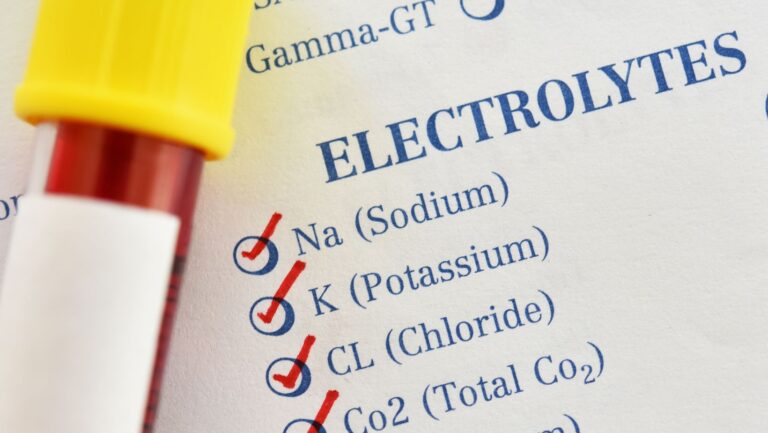Fasting has become increasingly popular due to its health benefits, including weight loss, improved metabolism, and enhanced mental clarity. Whether you practice intermittent fasting or extended fasting, it’s crucial to pay attention to maintaining your body’s balance, particularly when it comes to electrolytes. These vital minerals play an essential role in maintaining hydration, muscle function, and overall well-being. Without proper replenishment, you risk experiencing symptoms like fatigue, headaches, muscle cramps, and dizziness, which can interfere with your fasting goals.
In the context of Electrolytes and Fasting, understanding the importance of these minerals is key to fasting safely and effectively. Electrolytes such as sodium, potassium, magnesium, and calcium are essential for bodily functions like nerve signaling, fluid balance, and muscle contractions. However, during fasting, especially when abstaining from food and sometimes water for prolonged periods, the body may deplete its electrolyte stores, making it necessary to replenish them. The good news is that you can naturally maintain healthy electrolyte levels without breaking your fast.
What Are Electrolytes and Why Are They Important During a Fast?
Electrolytes are minerals in your body that carry an electric charge. They are found in your blood, tissues, and other bodily fluids. The most critical electrolytes include:
- Sodium: Helps regulate fluid balance, blood pressure, and nerve function.
- Potassium: Supports muscle contractions, heart health, and nerve signaling.
- Magnesium: Plays a role in over 300 enzymatic reactions, including muscle and nerve function.
- Calcium: Important for bone health, muscle contractions, and nerve transmission.
During fasting, your body continues to perform essential functions, and these processes rely heavily on electrolytes. When you’re not eating or drinking regularly, your body can lose electrolytes through sweat, urine, and other metabolic processes. This loss becomes more significant during extended fasting or if you’re physically active while fasting. Replenishing electrolytes is vital to prevent imbalances that could negatively impact your health.
Signs of Electrolyte Deficiency During Fasting
Before we explore natural ways to replenish electrolytes during a fast, it’s important to recognize the symptoms of electrolyte deficiency. Some common signs include:
- Muscle cramps: Often caused by low potassium or magnesium levels.
- Fatigue and weakness: An imbalance in sodium or potassium can lead to feelings of exhaustion.
- Headaches and dizziness: Low sodium levels are often responsible for dehydration-related headaches.
- Heart palpitations: Magnesium and potassium deficiencies can affect heart rhythm.
- Nausea or vomiting: Electrolyte imbalances, especially during prolonged fasting, can lead to gastrointestinal issues.
If you experience these symptoms while fasting, it’s crucial to address them quickly by replenishing your electrolyte levels naturally.
How to Replenish Electrolytes Naturally Without Breaking Your Fast
Maintaining electrolyte balance during a fast can be tricky because many common sources of electrolytes, such as sports drinks or electrolyte supplements, contain sugars or calories that break the fast. However, there are natural, fasting-friendly ways to replenish electrolytes.
-
Drink Water with a Pinch of Sea Salt
Water is essential during fasting, but drinking plain water alone can sometimes flush out electrolytes. Adding a small pinch of unprocessed sea salt to your water can help replenish sodium and other trace minerals like magnesium and calcium. Sea salt is a natural, unrefined source of electrolytes, and it doesn’t contain the additives or refined chemicals found in table salt.
- Why it works: Sodium is one of the most easily lost electrolytes, especially through sweat. By adding sea salt to your water, you can replace this vital mineral without consuming calories.
-
Use Electrolyte Powders or Tablets
If you prefer a more convenient solution, electrolyte powders or tablets can be added to water to provide a balance of sodium, potassium, magnesium, and calcium. It’s important to choose products that are free from sugar and artificial sweeteners to avoid breaking your fast. Look for electrolyte supplements specifically designed for fasting, as these will often have the right balance of minerals without any added calories.
- Why it works: These powders or tablets provide a quick, easy way to restore electrolytes during a fast without compromising the fasting state.
-
Coconut Water (In Moderation During Intermittent Fasting)
Coconut water is a natural source of potassium and other electrolytes. Although it contains calories, a small amount of unsweetened coconut water can be beneficial during intermittent fasting, especially after exercise. Be mindful of the sugar content and keep it to a minimum if you’re trying to avoid breaking your fast.
- Why it works: Coconut water is rich in potassium, which is often depleted during fasting. It’s particularly useful for shorter fasts where consuming a small number of calories is acceptable.
-
Bone Broth (For Extended Fasts)
Bone broth is an excellent source of electrolytes, especially sodium, magnesium, calcium, and potassium. While bone broth does contain calories, it’s a staple for those practicing extended fasts (more than 24 hours) because it helps prevent electrolyte imbalances without overwhelming the digestive system. Drinking bone broth can provide the necessary nutrients to maintain energy and hydration during prolonged periods without food.
- Why it works: Bone broth is nutrient-dense and supports electrolyte balance, making it an ideal option for longer fasts where a minimal caloric intake is acceptable.
-
Apple Cider Vinegar and Water
Adding a tablespoon of apple cider vinegar to water can help replenish potassium and sodium. Apple cider vinegar is a popular addition to fasting regimens because it supports digestion, helps regulate blood sugar levels, and contains small amounts of key electrolytes. Just make sure to dilute it well, as the acidity can damage your teeth and stomach lining if consumed undiluted.
- Why it works: Apple cider vinegar’s potassium content makes it useful for maintaining electrolyte balance, especially during intermittent fasting.
-
Leafy Greens (For Refeeding Post-fast)
Once you’ve completed your fast and are reintroducing food, leafy greens like spinach, kale, and Swiss chard are excellent sources of magnesium and potassium. Incorporating these into your post-fast meals can help replenish any electrolytes that were lost during fasting. These greens are low in calories and packed with nutrients that support overall health and recovery after a fast.
- Why it works: Leafy greens are nutrient-rich and can easily be incorporated into smoothies, salads, or soups for a natural electrolyte boost after fasting.
Tips for Maintaining Electrolyte Balance During Fasting
To maintain optimal electrolyte levels during your fast, consider the following tips:

- Stay Hydrated: Drinking enough water is crucial for staying hydrated, but make sure to add a pinch of salt to prevent flushing out electrolytes.
- Monitor Physical Activity: If you’re exercising during your fast, you’ll need to be more proactive about replenishing electrolytes, especially if you’re sweating heavily. Electrolyte-rich water or supplements can help.
- Listen to Your Body: If you start to experience symptoms of electrolyte deficiency, such as dizziness, headaches, or muscle cramps, it’s important to address the issue immediately. Replenishing electrolytes with sea salt, electrolyte supplements, or bone broth can help prevent more severe problems.
- Use Fasting-Safe Electrolyte Supplements: If you find it difficult to maintain electrolyte balance naturally, consider using supplements specifically designed for fasting. Just ensure they don’t contain sugar, artificial ingredients, or calories.
Conclusion
Balancing electrolytes during fasting is crucial for maintaining your energy levels, preventing dehydration, and avoiding unwanted symptoms like headaches, fatigue, or muscle cramps. With the right strategies, you can replenish electrolytes naturally without breaking your fast. Whether you choose to add sea salt to your water, drink bone broth, or incorporate small amounts of coconut water or apple cider vinegar, these simple solutions will help you stay hydrated and energized throughout your fasting journey.


